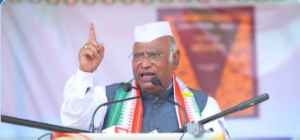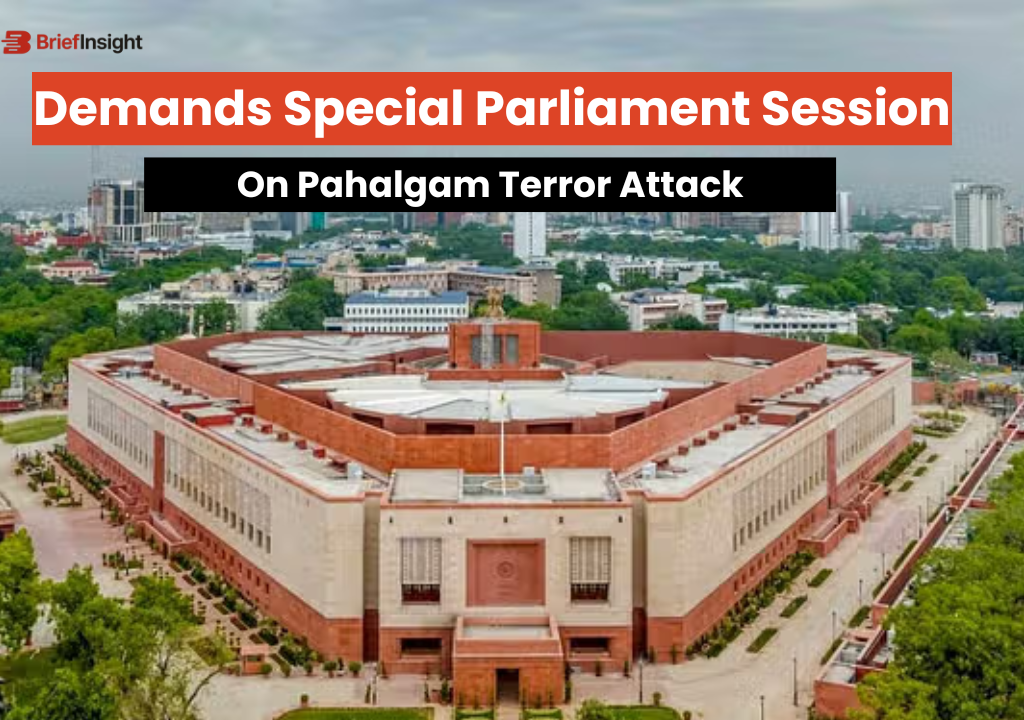Congress President Mallikarjun Kharge has urged Prime Minister Narendra Modi to convene a special session of Parliament on Pahalgam terror attack. The call aims to reflect a united national front in response to one of the most horrifying terror incidents in recent times. This demand, shared across opposition parties, seeks to elevate the discussion on national security and unify political forces in condemning terrorism. The Congress Special Session Pahalgam Attack appeal emphasizes the need to strengthen institutional responses to terrorism beyond partisan divisions.
Mallikarjun Kharge Writes to Prime Minister Modi
In his official letter to the Prime Minister, Kharge emphasized that a special parliamentary session would not only provide a platform for debate but also send a symbolic message of unity and resolve. He highlighted that a democratic institution like Parliament must stand together during times of national crisis to reassure citizens that their elected representatives are collectively committed to national security.
Kharge wrote, “This will be a powerful demonstration of our collective resolve and willpower to deal with the brutal terror attack in Pahalgam on innocent citizens.”
The Congress leader, who also serves as Leader of Opposition in the Rajya Sabha, underlined that the urgency of the situation necessitates the immediate convening of both Houses. The letter was made public by Congress communications in-charge Jairam Ramesh, who posted it on X, stating that the party believes this move would allow India to confront terrorism with a unified voice.

Opposition’s Collective Call for Unity
The Congress party’s appeal has received support from several quarters within the opposition alliance, with leaders from various parties echoing the sentiment that India must act as one in the face of terror. They argue that this is not a moment for political bickering but for a cohesive national stand that echoes globally.
Leaders from the Trinamool Congress, DMK, SP, and other regional parties have also issued statements aligning with Kharge’s position, reinforcing the narrative that democratic unity is India’s greatest weapon against terrorism. They suggest that such a session would not only offer closure to the victims’ families but also reflect a mature democracy’s approach to crises.
The Pahalgam Terror Attack: National Shock and Outrage
On April 22, 2025, gunmen attacked a group of tourists at Baisaran meadow in Pahalgam, resulting in the deaths of 26 civilians, including one Nepali national. The brutality of the attack and its timing — when Kashmir had been witnessing record tourism and economic revival — shook the nation.
The victims hailed from diverse parts of the country, making the tragedy a pan-India heartbreak. From West Bengal to Maharashtra, Odisha to Gujarat, families were devastated by the loss of their loved ones. Citizens across India expressed solidarity and anger, with mass protests, candle marches, and social media campaigns demanding immediate justice.
Links Suggested: US Intelligence Chief Backs PM Modi’s Fight Against Pahalgam Terror Attack
Cross-Border Linkages and India’s Official Stand
Soon after the attack, Indian security and intelligence agencies linked the perpetrators to The Resistance Front (TRF), a proxy outfit of Lashkar-e-Taiba, operating from Pakistan-occupied Kashmir. In a statement, the government affirmed that the attack had cross-border dimensions, and held Pakistan directly responsible for providing logistical and ideological support to the attackers.
As part of its immediate retaliation, India suspended:
- The Indus Waters Treaty,
- All visas for Pakistani nationals,
- Cultural and sports exchanges,
- Diplomatic engagements beyond the essential level.
These moves mark a significant escalation in bilateral hostility and frame the attack as not just a domestic terror event but an international provocation.
Congress Criticizes Government Response and PM’s Absence
Even as the Opposition called for unity, it did not shy away from criticizing the government. At a rally in Rajasthan, Kharge lashed out at PM Modi for skipping the all-party meeting convened to brief political leaders on the attack.
“In this hour of crisis, everyone wants to fight together, but the BJP wants to spread venom and divide people,” Kharge remarked. He suggested that the Prime Minister’s absence during a critical hour signaled indifference, adding to the perception that the government was reluctant to embrace collective political action.
Other Congress leaders, including Jairam Ramesh and P. Chidambaram, questioned the lack of transparency, accusing the government of treating a national issue as a party affair.
Demand for a Parliamentary Platform to Showcase Unity
The Congress insists that a special session of Parliament would:
- Allow for an open debate on terrorism and national preparedness,
- Enable passing a joint resolution condemning terrorism,
- Showcase India’s unity in diversity in the face of crisis.
Kharge believes the session could also serve to address citizen concerns, build confidence, and develop a multiparty action framework for long-term counter-terrorism initiatives. By taking this discussion into the parliamentary space, the Opposition hopes to restore credibility and accountability to India’s anti-terror narrative.
Conclusion
The Congress Special Session Pahalgam Attack demand is more than a political statement — it is a call for India’s democratic institutions to function at their best in times of national crisis.
By convening both Houses of Parliament, the government has a chance to showcase unity, strength, and resolve, and to lead the nation from a place of grief to one of determined purpose.
Whether or not this demand is accepted will be a test of India’s political maturity and the ruling party’s willingness to prioritize national unity over partisan agendas.

